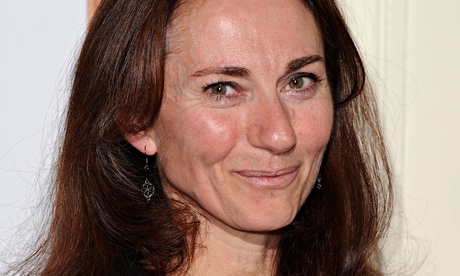
A nation smiled and wept over The Unlikely Pilgrimage of Harold Fry, the charming tale of a man who, after hearing from an old friend that she is dying of cancer, is taken by a fit of magical thinking and sets off to walk across England from his home in Devon to her hospice in Northumberland, reasoning that while he is walking she will not die. No amount of wishing can turn the tide of death, yet Harold's long journey – in inadequate footwear – is a beautiful act of atonement for his failure to thank Queenie Hennessy for a favour done many years ago. Nor is one step wasted: he brings a little hope to everyone he meets, wins back the love of his wife and faces up to the death of his son. As a celebration of ordinary lives, the novel deserved its place on the 2012 Man Booker longlist.
Now Rachel Joyce has written a companion novel, told from the point of view of the dying friend. It takes place within the same timeline as the original, with the same main characters and a similar whimsical supporting cast, yet it feels very different.
In the first book, Harold walks away from his son's death and towards the death of his old friend, yet when that road runs out he is able to veer off into the sunset, hand in hand with his wife. In the second telling, we are dealing with Queenie's sunset – and beyond that there is only night. Trapped in her hospice bed, wandering only in her mind, her arduous pilgrimage consists of writing words. With great physical difficulty, blistering her fragile fingers as Harold is blistering his feet, she writes a letter to him that reveals two essential secrets. One is that she has been in love with Harold ever since she first laid eyes on him – a love that has carried on without end, knitting itself into the fabric of her single life. The second is that she knew his son – and knows something Harold does not about the boy's death.
There is something excessive about carrying a torch for someone who has never felt the same way, and maybe that is why Queenie allows Harold's son to hang around her, annoying her and stealing her money – because the younger Fry also has a penchant for excess. David, intelligent and mentally fragile, despises his unassuming father and longs to stand out from the crowd. He cannot face doing something just for the sake of it, like a suburban man with a hobby – he wants to be famous. As he says: "It's no good being a fucking poet if no one knows that you are one. I'd rather be a nobody, like Father. I'd rather know I was nothing, and get on with it." Driven by his need to be extraordinary, he turns to drink and drugs, a journey that culminates in tragedy.
Queenie's journey is to tell the truth about her love for Harold and the death of his son. But unlike The Unlikely Pilgrimage, The Love Song lacks that warm feeling of redemption. Unrequited love is only that, and as for David's death, nothing can make it right.
However, the book is not without its own pleasurable uplift: a spiritual wind beneath its wings. Harold's pilgrimage creates an atmosphere of fun and joy for everyone in the hospice, as waiting for death becomes transformed into waiting for Harold, the elderly white knight who will in some way save them all. New friendships and even loves are kindled, if necessarily briefly. The beauty of a tree moves Queenie to laughter, and she finds she can still appreciate the taste of a peach.
The Love Song is far darker than The Unlikely Pilgrimage, yet perhaps it adds necessary ballast to the sparkling balloon of Harold's journey – and it will certainly find a grateful readership.
• To order The Love Song of Miss Queenie Hennessy for £11.99 go to bookshop.theguardian.com or call 0330 333 6846.

